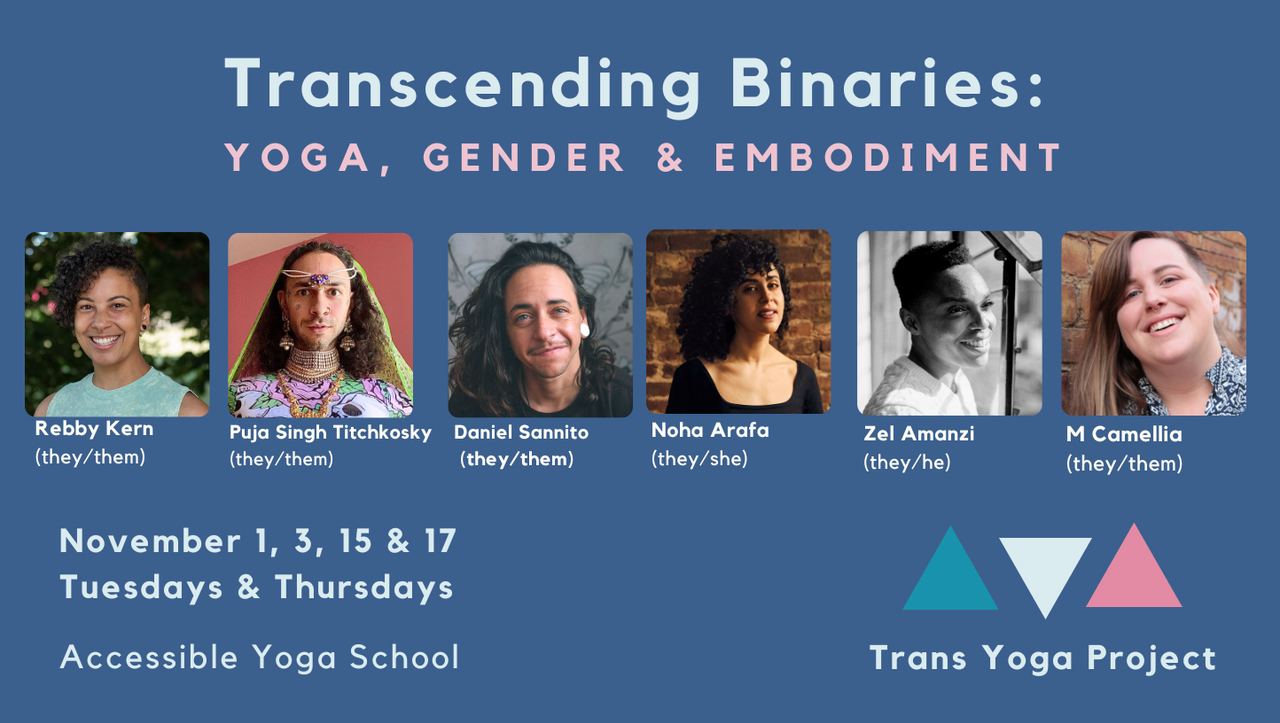3 Self-Study Prompts to Help You Tap Into a Realm of Infinite Possibilities

by M Camellia
This morning I woke up feeling chilly. I made myself a hot cup of coffee and went about my morning routine. Somewhere along the way, I set my coffee down, and when I next went to take a sip, I couldn’t remember where I’d left it. After a short search, I found it on my dresser and took a nice gulp. Of course, having sat out for some time, it was no longer hot. But it was also not yet cold. It was a little bit of both, and it was neither, a tepid sip at one of the infinite temperatures in between two opposing extremes.
In this relatively simple, mundane way, I had an experience beyond a binary. The word “binary” means, “relating to, composed of, or involving two things.” If you had asked me this morning whether my sip of coffee was hot or cold, you would have presented me with binary options. My response of “tepid,” therefore, would have introduced a non-binary option, one of the many existent descriptors of temperature that the English language has beyond the hot/cold binary.
“Hot and cold” is likewise an example of the “dualities of the opposites,” mentioned by Patanjali and others. In the three Sutras on asana, as translated into English by Edwin F. Bryant, Patanjali writes:
Posture should be steady and comfortable. (2.46)
[Such posture should be attained] by the relaxation of effort and by absorption in the infinite. (2.47)
From this, one is not afflicted by the dualities of the opposites. (2.48)
The word “duality” means “an instance of opposition or contrast between two concepts or two aspects of something,” and is similar and related to the concept of a binary. Each instance of duality presents us with a binary, an idea composed of two things.
Patanjali says that when we relax into a steady and comfortable position and meditate on the infinite, we are able to transcend duality, which is referred to as an affliction, something that keeps us from liberation. In order to practice as Patanjali suggests, we must be able to conceptualize the infinite. How do we do that?
One way to conceptualize the infinite is to consider the divisibility of space or time. Both are generally considered infinitely divisible, meaning that any increment can be further divided in perpetuity. Minutes divide into seconds, divide into milliseconds, divide into microseconds, nanoseconds, picoseconds, and so forth. When presented with a binary, the first division has already been made for you—”temperature” has been divided into “hot” and “cold”—but what happens when we keep dividing? Through continuous differentiation, we arrive at a single infinity of options. Plurality creates the conditions within which we can begin to conceptualize oneness. The space between two binary options is where infinity lives.
Non-binary thinking opens up infinitely more possibility. It is a form of liberatory thought, shoring up more and more opportunities for each of us to exercise agency. It allows for nuance. It’s a component of creativity, justice, and equity. It may also be a helpful pathway into viveka, discriminative discernment, and even into a state of yoga.
3 journaling prompts to help you transcend binaries and experience the infinite in-between
Try these inquiries to expand your perspective—along with your ideas of what's possible.
- Can you remember a recent experience beyond a binary? When was the last time you felt warm, but not hot or cold? When was the last time you were asked a “yes or no” question and responded, “maybe?” When was the last time you watched a sunset or sunrise?
- Can you think of any non-binary identities that you hold? These may not be related to your gender experience–there are many identities that can exist beyond binaries. You might think about your age, education, income level, or consider where you are situated in any of the categories represented on Sylvia Duckworth’s interpretation of the Wheel of Power & Privilege.
- Can you think of an area where you have a tendency toward either/or thinking? Can you consider the same area with a mindset of “both/and” or “neither?”
Interested in learning more?
Join M and fellow co-founders of Trans Yoga Project for Transcending Binaries: Yoga, Gender, & Embodiment.
The four-part course starts Tuesday! ⤵️
Transcending Binaries:
Yoga, Gender, & Embodiment
This course, designed for yoga practitioners and teachers of all gender experiences, will take a yogic approach to the exploration of gender, using the koshas as a model for journeying into a deeper understanding of our own practices, bodies, identities, and states of bliss.
Learn More & Register Now
This is a fresh, deeper take on a “trans inclusion 101” class, expanding beyond basic definitions and concepts and allowing practitioners of all genders to truly begin dismantling the binaries that are barriers to experiencing and teaching yoga as a bliss and liberation practice.
We will explore “transgender inclusion” within a more expansive historical, counter-colonial, abolitionist, and liberatory framework.
Participants will have the opportunity to engage in svadhyaya and embodiment practices to unlearn gender myths for themselves, and if applicable, their students and studios. The course will include both trans/gender-expansive and cisgender affinity spaces, as well as resources and reflection assignments for continued study between sessions.
Course details:
November 1, 3, 15, & 17
Tuesdays & Thursdays
1:30pm-4:30pm Pacific
4:30pm-7:30pm Eastern
Pricing tiers & payment plans available
Can't attend live? Receive the replays for 1 year
Learn More & Register Now
About the Author
M Camellia (they/them) is a yoga teacher and advocate, called to create profoundly accessible spaces for self-inquiry by integrating mindfulness and adaptive movement practices with the spirit of social justice. They believe that the goal of yoga, as of life, is collective liberation and in turn challenge contemporary yoga practitioners to dismantle the systems and beliefs that hold us all back.
M teaches group and private classes in the Washington DC Metro Area and as a Founding Instructor on the online class platform Core to Coeur. They offer regular workshops exploring queer identity, body image, and agency. Beyond their direct work with students, M co-leads the Yoga & Body Image Coalition and trains teachers in accessible teaching methods for all bodies and abilities through their one-on-one teacher mentorship program and as an Accessible Yoga Trainer, and manages operations for Accessible Yoga Trainings internationally.
They’ve been called a “tour-de-force of encouraging radical self-love” (DC Refined) and listed among the “top thinkers and activists in the field of body positivity” (OmStars). M lives in Silver Spring, Maryland with their two cats, Matcha and Chai.
Connect with M at foundspaceyoga.com or on Instagram @foundspaceyoga


